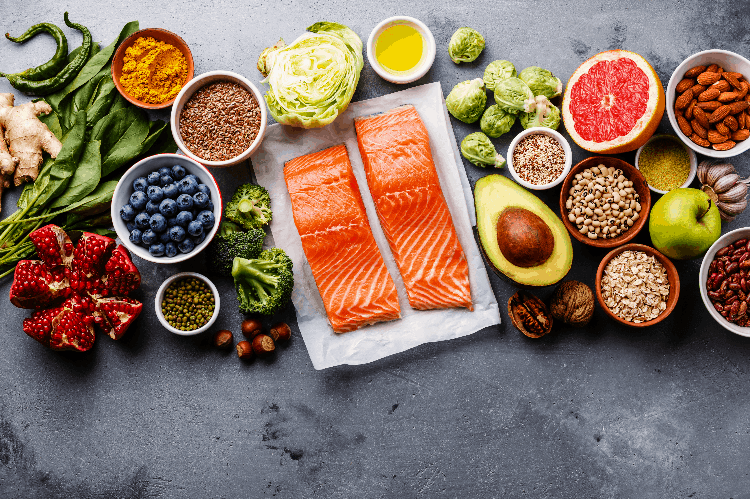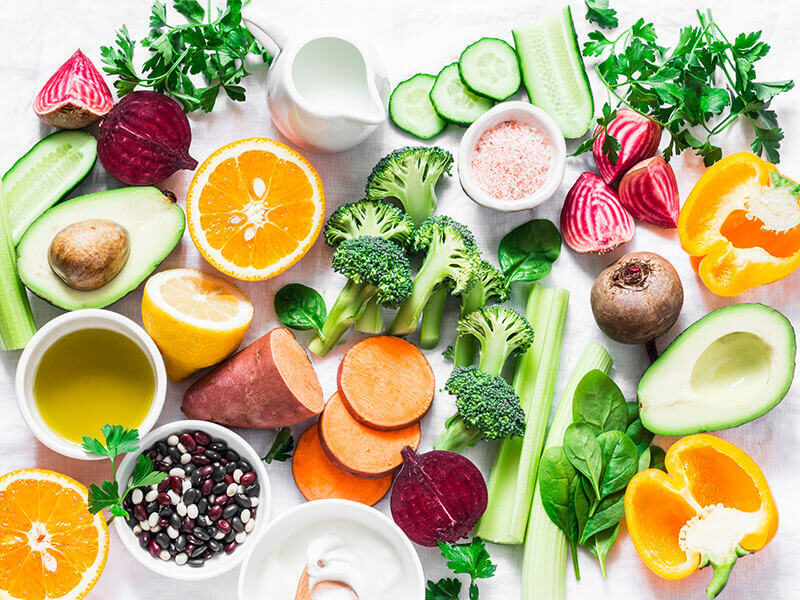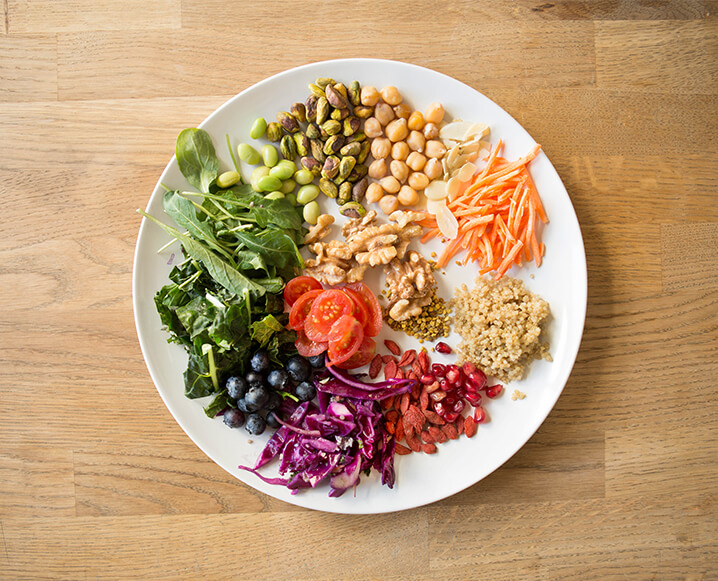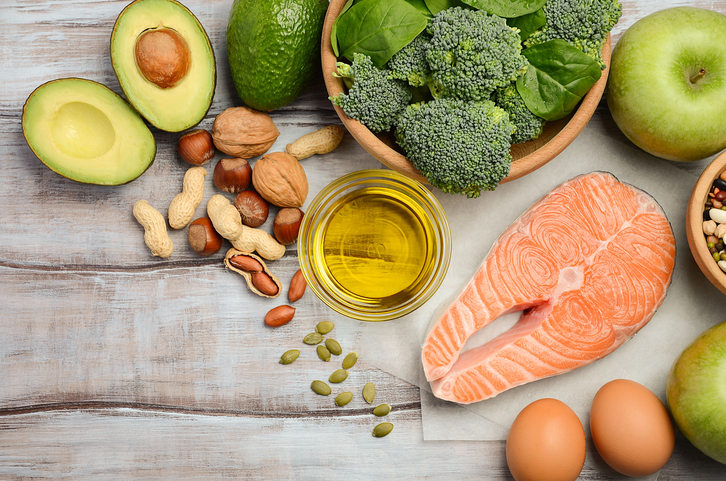Introduction
You may be aware that calorie consumption impacts weight gain and decrease. A variety of other factors, however, can influence appetite, food cravings, and fat formation. Because hormones affect several of these factors, your hormones may have a significant impact on weight management.
There are foods that, according to The Hormone Diet, can be utilized to reset these hormones and help your body respond to them more effectively.
Is there any proof to back up this diet, or is it only the author’s opinion? This is an in-depth examination of The Hormone Diet.
What is The Hormone Diet?
“The Hormone Diet” is a book and diet program written by Dr Natasha Turner, a naturopathic doctor. Its primary focus is hormonal changes that can negatively affect a person’s weight. It also investigates other risk factors for obesity and other chronic diseases.
The Hormone Diet is a three-step, six-week program that promotes hormonal balance and overall health through diet, exercise, nutritional supplements, and cleansing. The diet dictates what and when you eat to optimize the effects of your hormones.
The book claims to be the first to address the importance of hormonal balance in the context of all weight-controlling hormones. It also claims to be the first to explain how certain lifestyle choices can help increase hormone levels and aid in weight loss. Here are a couple of such examples:
- Sleeping
- Eating
- Coping with stress
- Exercising

The first phase of the program attempts to lose up to 12 pounds, including water weight. It tries to lose roughly 2 pounds per week after that without calorie tracking.
Following the full routine, according to the author, may help you optimize your body’s inflammatory levels as well as these hormones:
- Cortisol dehydroepiandrosterone acetylcholine (DHEA)
- dopamine
- estrogen
- GABA (gamma-aminobutyric acid) (GABA)
- hormone of growth
- insulin
- melatonin
- progesterone
- serotonin
- testosterone
- Hormones of the thyroid
Phase 1
This diet phase includes a two-week “detoxification” period. You are not eating because:
- Grains with gluten
- Cow’s milk-based dairy products
- a number of oils
- alcohol
- caffeine
- peanuts
- sugar
- sugar replacements that aren’t real
- red-coloured skin
- lemons and oranges
During this stage, you can eat the following foods:
- Grain and starch products that are naturally gluten-free
- The overwhelming majority of vegetables
- The great majority of fruits
- Beans
- Aside from peanuts, nuts, and seeds
- Poultry
- Fish
- Soy
- Eggs
- Milk derived from plants
- Dairy products from sheep or goats
- Certain oils
Dietary supplements are often used at this point. Examples include probiotics and anti-inflammatory products such as turmeric and fish oil.
Phase 2
During this phase, you reintroduce select foods into your diet while monitoring how your body responds to them.
The diet, on the other hand, suggests regularly avoiding “hormone-disrupting” items. Here are a couple of such examples:
- Corn syrup high in fructose
- Mercury-rich fish
- There are no organic meats available.
- Coffee that isn’t organic
- Raisins
- Dates
- Peanuts
The second phase is eliminating all man-made products from your diet, including:
- Ready-made foods
- Sugar replacements that aren’t real
- Grains refined
- Foods high in nitrates, such as cured meats
In the book, the author refers to her diet as “Glycine-Med.” This implies she follows the glycemic index and the Mediterranean diet. The Mediterranean diet is a heart-healthy diet centred on traditional Mediterranean dishes rich in olive oil.

Phase 3
The third phase focuses on general physical and mental wellness through aerobic activity and strength training. The second phase’s diet pattern is carried over to the third phase.
Both Phases 2 and 3 allow for some deviation from the regimen, although the book recommends that you should make Hormone Diet-approved decisions at least 80% of the time.
What You Should Eat
The main foods to eat on the Hormone Reset Diet are mostly whole foods, with the exception of the food groups that are avoided throughout each phase.
Vegetables
To stay under the required 99 grams of carbohydrates, eat a pound or more of vegetables per day, focusing on less starchy, high-fibre alternatives.
- Asparagus
- Greens that have leaves
- Zucchini
- Mushrooms
- Chilli peppers
Chicken and eggs that are organic and free-range
According to the Hormone Diet, non-organic, factory-produced eggs and chicken contain “toxins” that contribute to hormonal imbalance.
- Poultry (organic and free-range chicken, turkey, duck)
- Eggs (organic and free-range)
Wild-caught fish
It is said that wild-caught fish has fewer “toxins” that disturb hormone balance
- Salmon
- Haddock
- Halibut
- Trout
What You Shouldn’t Eat
Certain meals are restricted at specified times or for specific people based on their alleged impact on hormones as determined by a questionnaire.

Meat
According to the Hormone Reset Diet, eliminating meat resets your estrogen levels. Being “estrogen dominant,” according to the diet, will hinder you from losing weight. All red meat is referred to as “meat” in the diet.
- Beef
- Pork
- Venison
- Mutton
- Boar
Alcohol
The hormone reset diet excludes alcohol since prolonged use has been linked to an increase in estrogen levels.
- Beer
- Wine
- Liquor
Sugar
Sugar, according to Gottfried, is addicting and causes insulin resistance, which leads to weight gain, so it is avoided.
- Sugar-sweetened foods (candy, dessert, chocolate)
- Fruit
- Juices
Caffeine
Caffeine is thought to raise cortisol levels, a stress hormone that interferes with weight reduction and sleep quality. The Hormone Reset Diet eliminates it.
- Coffee
- Tea noir
- Soda
- energizing beverages
Grains
According to the Hormone Reset Diet, grains influence thyroid hormones and promote insulin resistance. Grains are avoided to treat bloating, tiredness, and hair thinning.
- Oats
- Rice
- Wheat
- Bread
- Cereal
- Pasta
Dairy
Dairy is banned because it is suspected to induce an imbalance and add unnecessary growth hormone. Dairy, according to the Hormone Reset Diet, is similarly addicting.
- Cheese
- Milk
- Yoghurt
Is it effective for weight loss?
The Hormone Diet will almost certainly lead to weight loss. The Hormone Diet aims to reduce inflammation and insulin resistance, both of which have been associated with obesity.
In fact, there is some evidence that eating highly processed foods, which are prohibited on this diet, causes more weight gain than eating entire, unprocessed meals. They are higher in calories and may trigger hunger hormone dysregulation, resulting in weight gain.

High-processed foods may contribute to insulin resistance, a condition in which the body begins to ignore the hormone insulin, which aids in blood sugar regulation.
Because insulin encourages fat storage, it is possible that weight gain will occur as insulin levels rise to compensate for their decreased efficacy.
Furthermore, some foods may include a high level of added sugars. When feasible, try to limit them in your diet.
Other potential advantages
The diet focuses on natural, nutritional foods and frequent exercise, as well as weight loss and overall wellness.
Furthermore, focusing on mental health, stress management, and getting enough sleep are all crucial components that can help you improve your overall health and may have an impact on weight-regulating hormones in the body.
High cortisol levels, for example, have been associated with abdominal fat gain. Cortisol is regarded as the stress hormone because it rises in response to stress.
Cortisol levels can be lowered by prioritizing mental health, getting enough sleep, and managing stress.
It also downplays the necessity of calorie counting, which may make it appear more liberating than other diet plans to some people. It encourages you to eat frequently to avoid feeling hungry and to consume till you are full.
Because it is not very calorie-restrictive, you may not experience rebound weight gain or a lower metabolic rate (number of calories burned at rest) after you cease the diet, as some other regimens that severely restrict calories do.
Even if you do not follow The Hormone Diet, eating whole and nutritious meals, minimizing processed foods, and getting regular exercise will help you manage your weight not only in the short term but also in the long run.
Preparing for the Hormone Reset Diet
The 21-day program, which is similar to an elimination diet, excludes items that are known to cause hormonal imbalances. According to Dr Gottfied, most women have at least one severe hormonal abnormality, if not three or more.
The technique claims to help you lose up to 15 pounds in 21 days by balancing the balance of seven different hormones that aid in the burning of abdominal fat and weight loss.
The diet plan aims to address these imbalances by eliminating meat, alcohol, fruits, grains, and dairy from the diet.
Is the Hormone Reset Diet Right for You?
Yes, the Hormone Reset Diet is Right for You. Although the Hormone Reset Diet promotes whole, healthful foods, it also excludes a number of high-nutritional-value foods. Grain is not permitted on the Hormone Reset Diet, for example.
The United States Departments of Health and Human Services and Agriculture recommend 6 to 8 ounces of grains per day, depending on caloric demands, in the Dietary Guidelines for Americans.
Similarly, the Dietary Guidelines recommend 2 cups of fruit and 3 cups of dairy each day, however, the Hormone Reset Diet does not include these foods. The Hormone Reset Diet suggests no more than 99 grams of carbohydrates per day; the USDA recommends at least 130 grams.

To reduce weight, stick to a daily caloric intake of 1,000 to 1,200 calories. This calorie goal is significantly lower than the USDA recommended, which is based on your gender, age, and level of activity.
The Hormone Reset Diet recommends eating plenty of vegetables. Many people do not eat enough vegetables on a daily basis. The USDA recommends eating the following vegetables at least once a week:
- 1–2 cups leafy greens
- 5-6 cups of vegetables in red and orange
- 1–2 cups lentils, peas, or beans
- 5–6 cups of starchy veggies
- 4-5 cups of additional vegetables
Some people must avoid dairy and many portions of cereal due to dairy allergies or celiac disease (gluten allergy). It is critical to note that effective meal planning can provide essential nutrients to youngsters such as calcium, iron, and B vitamins.
Advantages of the Hormone Reset Diet
- Healthy diet: The Hormone Reset Diet emphasizes whole foods, plenty of veggies, and lean proteins, all of which are essential components of a healthy diet. Many other healthful whole foods, on the other hand, are removed, and there is no room in the diet for processed foods or added sweets.
- Reduces sugar: While it is not required to limit starchy grains and fruit in order to reduce your sugar intake, the Hormone Reset Diet does urge you to avoid added sugars. According to the United States Department of Agriculture, the majority of adults consume far too many added sugars.
- Encourages healthier food choices: The Hormone Reset Diet allows for only healthy meals. People who focus on veggies are more likely to consume the recommended amount of healthy produce.
The Hormone Reset Diet’s Drawbacks
- Nutritious food groups have been removed: The Hormone Reset Diet eliminates foods that most nutritionists consider to be healthy, such as fruit and whole grains.
- High price: Because approved foods must mostly be organic and free-range, food prices may be too high for many people. Furthermore, many of the recommended meals and dishes are specialist goods that are far more expensive than the standard fare.
- Difficult to follow: The Hormone Reset Diet demands you to avoid pollutants such as BPA and certain food additives in addition to avoiding food groups.
- Diets that eliminate entire food groups are usually excessively restrictive. Eating disorders can develop as a result of restrictive diets.
To summarize
The Hormone Diet is a 6-week diet that severely restricts specific foods or food groups.
Because it emphasizes eating complete, minimally processed foods, as well as getting enough sleep, physical activity, and mental health care, the Hormone Diet may help you lose weight.
It may even have some positive effects on your hormones, though you should get them checked before and after the diet to be sure.
However, the diet may be extremely restrictive and onerous for many people. You can use the best parts of this diet to improve your health, such as focusing on whole foods, moving more, getting adequate sleep, and working on your mental health and stress management.
